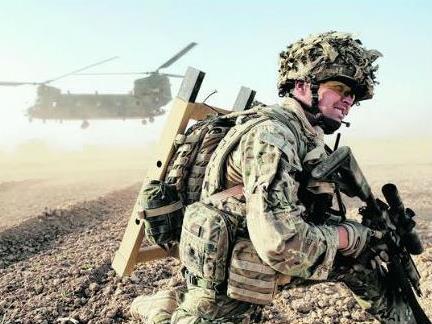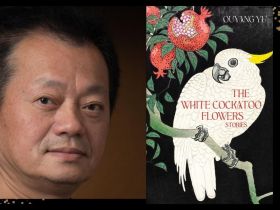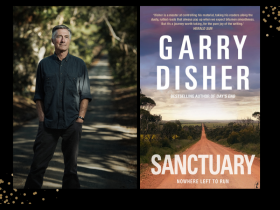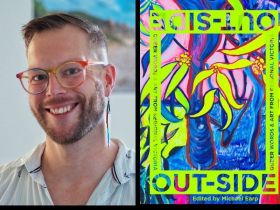Image:www.walesonline.co.uk
Overnight, as if by magic, a shower unit has appeared in the middle of the base. It looks like a tepee, the type of shelter you find at the Glastonbury music festival. Since our arrival, no one has been able to have a proper wash; most of us have taken to using my multipurpose yellow sharps container and a flannel or small cloth. I have gotten used to being grubby, and it no longer bothers me. Still, the shower is a welcome sight for all of us.
Kev and I sit quietly, relaxing in the ops room. Maj. Clark is enjoying his first shower, and Capt. Wood is reading outside. Daydreaming on my roll mat, I think about what may become of us down here. My moment of peace is interrupted by a conversation developing outside. Flashheart is discussing how the lack of amenities must be taking its toll on the men of B Company, worse still for the female soldiers who are attached. Kev looks at me with a smirk, already knowing that I will have something to say about it.
I ignore the conversation until the role of women on the front line is raised. Kev’s smirk is now a full-on Cheshire cat grin. Smiling back, I acknowledge that I have heard Flashheart’s comments but am far too relaxed to engage in shit chat with the man so early in the morning. I hold out for a whole two minutes, and then Flashheart appears in my peripheral vision. From the moment he arrived, I knew it was only a matter of time before he would start to annoy me.
‘So, Sgt Taylor, what do you think?’ he asks.
‘About what, sir?’ I reply.
‘Females,’ he says. ‘Females serving in the infantry.’
I pause for a second, looking at the floppy-haired officer before me. I scan his kit and scrutinise the way he is dressed. I get eyes on two knee pads, one on each knee. No one ever wears two knee pads; you only need two if you are busy doing stuff you shouldn’t be. I only packed one knee pad, and the rest of B Company has done the same.
If he was defusing a bomb, maybe he would be forgiven, just like the dude in The Hurt Locker pulling up a daisy chain with his bare hands. (A daisy chain is a long line of any number of IEDs, usually initiated by one device or trigger, tactics used with devastating effect during the uprising in Iraq in 2004.) Flash reminds me of one of ‘those soldiers’, the type who will wear a full set of waterproofs just in case it rains – very much a precautionary operator, as opposed to a remedial one.
This told me all that I needed to know about Flashheart. Happy to engage in his shit chat, and without too much thought, I reply swiftly, my tone unwavering and with just a hint of sarcasm. ‘From my own experiences, I am personally not keen on it; however, if it is about choice, roles should open up. There are plenty of weak individuals being carried already, though, aren’t there, sir?’
Blushing slightly, he offers no comeback to my response. The only sound is laughter coming from our 2IC outside. Capt. Wood and I have forged a solid working relationship, and we’ve already had this conversation. He knows me and my team well and has come to rely on us, as we have him. We spent much time together in Nawa, a district to the north of Garmsir. He’s a witty young officer undoubtedly destined for great things.
When I hear liberals having their often-heavy debates about equality in the armed forces, I think, Send your daughter or sister to the front line; better still, send yourself, and soak up a bit of atmospherics in Nad-e Ali, Sangin, or Marjah; then you can make an informed decision. There are women who have the stomach to push a bayonet into another person, twist it, take it out, and do it again and again, in order to be sure that the enemy is dead. Those types are a rarity; female soldiers already play a key role in many areas of the military: intelligence, technical areas, dog handling, command positions, fighter pilots, Apache gunship pilots, and, of course, combat medics.
In Helmand, some of the bravest young soldiers are the females driving the unit supply trucks across the open desert. These convoys constantly face Taliban attacks. Of course there are also the women who serve with MERT.
In Afghanistan, women have been forced to squeeze into the front line because we have so few troops trying to stabilise the area. For many years, there were more than 20,000 British troops in Northern Ireland; yet, when we first deployed to southern Afghanistan, we sent just 4,500 troops, and it took several years before that was increased to 10,000.
As a military force, we simply cannot provide the safe and secure environment to allow reconstruction to take place. All the humanitarian efforts will be futile if the insurgency is allowed to continue and, in some cases, expand. The only way that the UK could have ever realistically delivered success in southern Afghanistan would have been to surge troops to at least 30,000. Then, in the early years, we might have been able to hold on to the ground that we fought so hard for. We name FOBs and PBs in memory of our fallen, yet do not have the good grace to keep hold of them. Our soldiers should never have been exposed to situations where they are so obviously outnumbered by the enemy.
I recall an incident back in 2006, when a small number of paratroopers remained isolated for more than a month in the district centre of Musa Qaleh. Against all odds, the men held the base, only to see it handed back to Taliban control six months later. How is that justified, and who makes the decision? With no strategic gain in handing it back, we as soldiers on the ground are left a little dispirited knowing that even the ever-so-important ‘big picture’ isn’t gaining, either. We the Brits are trying to secure a country twice the size of Wales; never indifferent to the cause, we remain steadfast when the decision makers get it wrong.
The UK government did not increase troop numbers to any significant level until 2008, perhaps through fear of losing public support. This may have been generated by concern that Britain would see more soldiers killed; in the end, the Americans came to our rescue. The lefties in Parliament are all but destroying the fabric of our society. We need a Churchill or Thatcher back in the top spot, the kind of Brit who knows how to take care of business overseas. These are my views, and I’m not shy about sharing them. It’s life or death for us here; there’s no time for nonsense, and I have no patience for it, even when it’s just shit chat. I’ll give it right back to Flashheart again if the opportunity presents itself.
Relaxing again, I make a cup of tea. Abbie and Jen soon join me, and the three of us discuss the wish list of kit that should be arriving in the resupp. Just when I start thinking it’s safe to chill out, Flashheart saunters into the ops room, holding what looks like a small French coffee press. ‘Anyone for coffee?’
I look at Abbie, who in turn looks at Jen, and then all three of us look at Kev. A second later, the giggling starts. Shaking my head, I politely decline his offer, burying my head in my bivvy bag. Flashheart makes his coffee, which he takes outside. He sits on the bench, sipping his coffee and smoking a Marlboro Lights cigarette.
He looks just as comfortable here in Nad-e Ali as I’m sure he would sitting outside a pub in the West End of London. His annoying aura makes him quite interesting; I find myself watching him as he cuts about the place. This helps me pass the time and gives me something amusing to think about, a welcome respite from recent more-depressing thoughts.
The entertaining moment is interrupted as the radio net gets loud and busy. We hear a contact report from the Pathfinder call sign, which involves heavy fighting in Marjah, to our south. Quiet time is on hold as we listen to the drama unfold.
‘We were lucky down there, mucker,’ Kev says.
‘I know, mate. Let’s hope they are too,’ I reply.
Excerpt from Battleworn: The Memoir of a Combat Medic in Afghanistan
By Chantelle Taylor
Available from Amazon, Barnes & Noble, iTunes and iUniverse
http://www.battleworn-chantelletaylor.com





